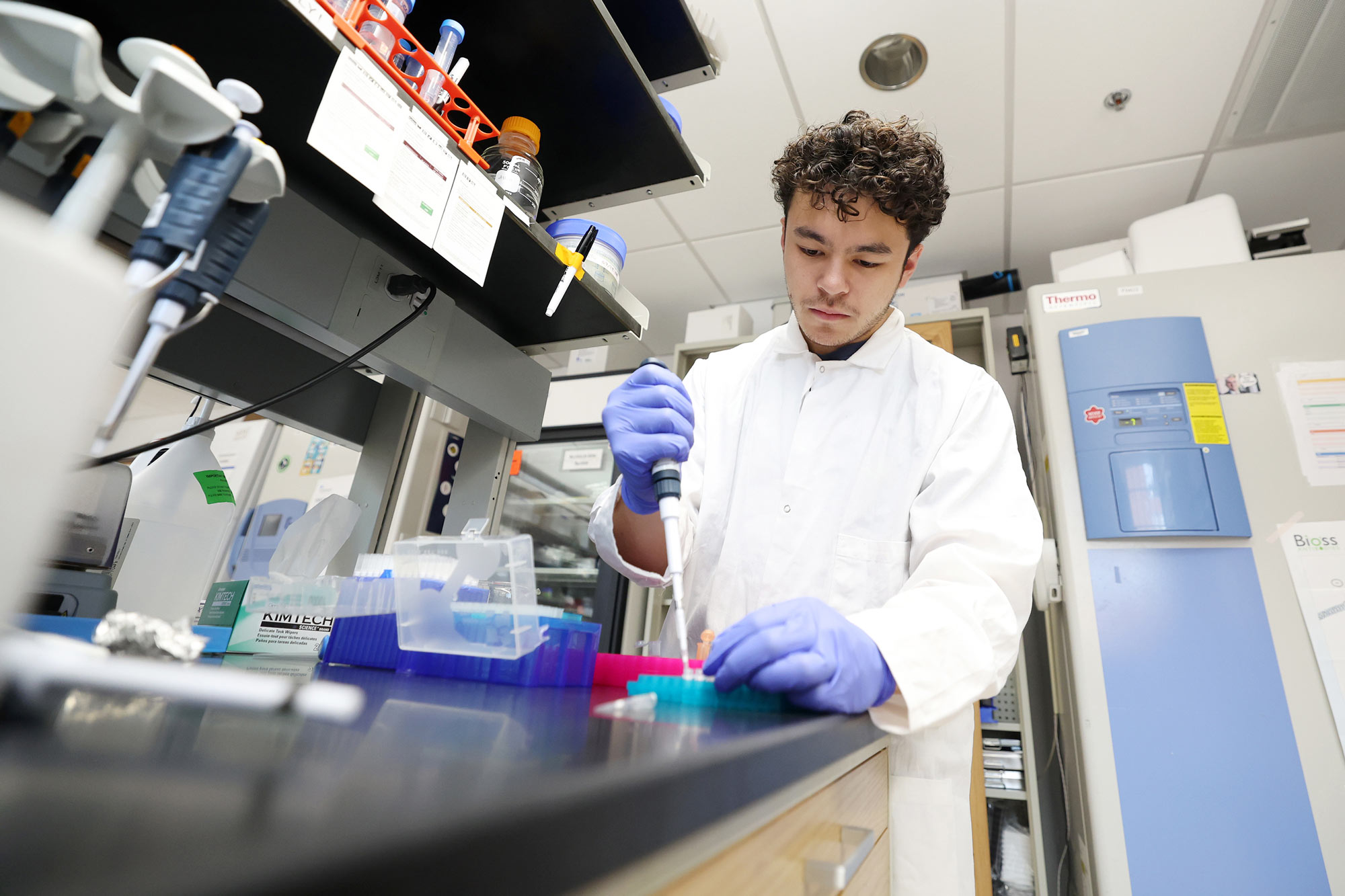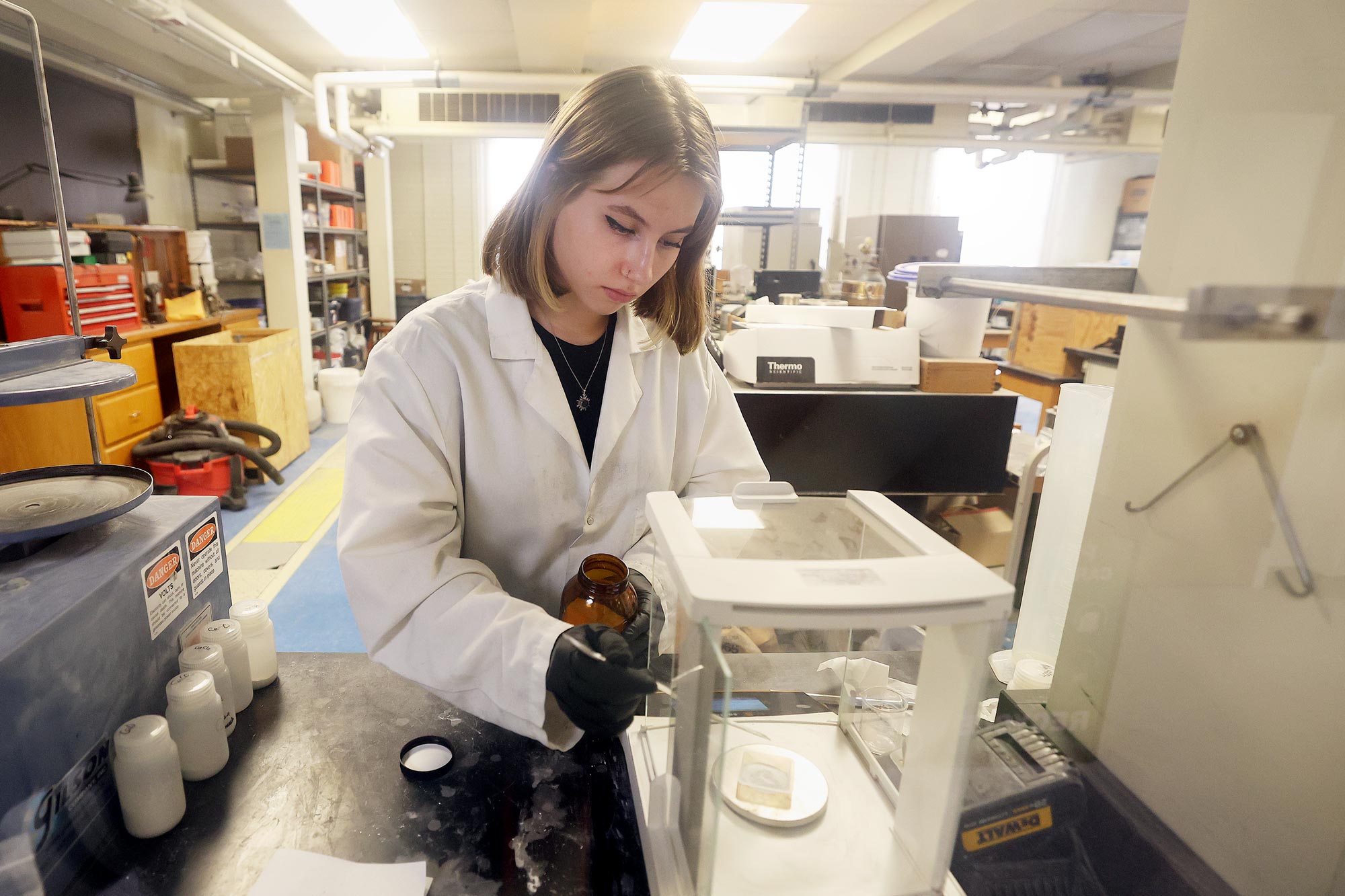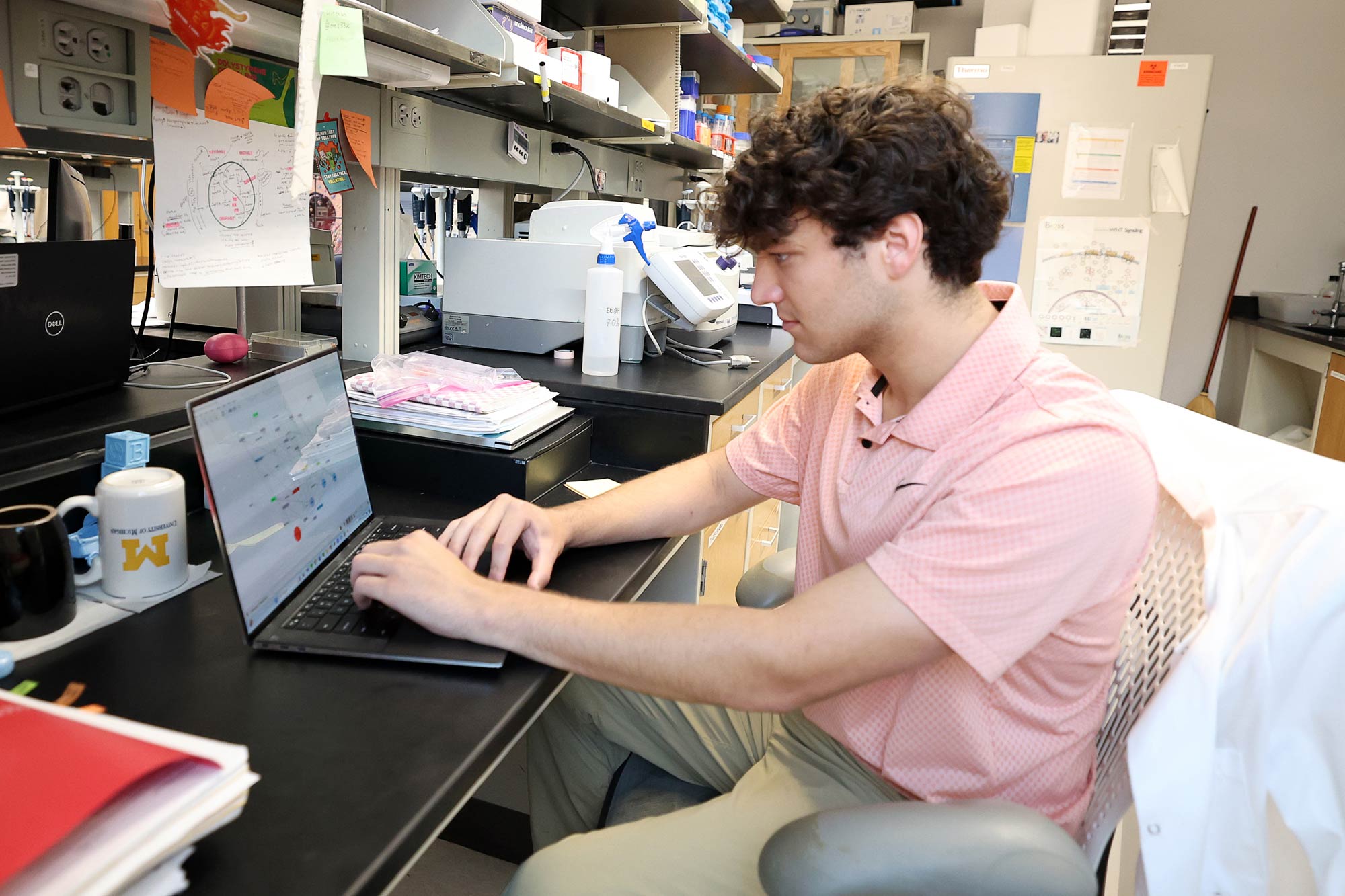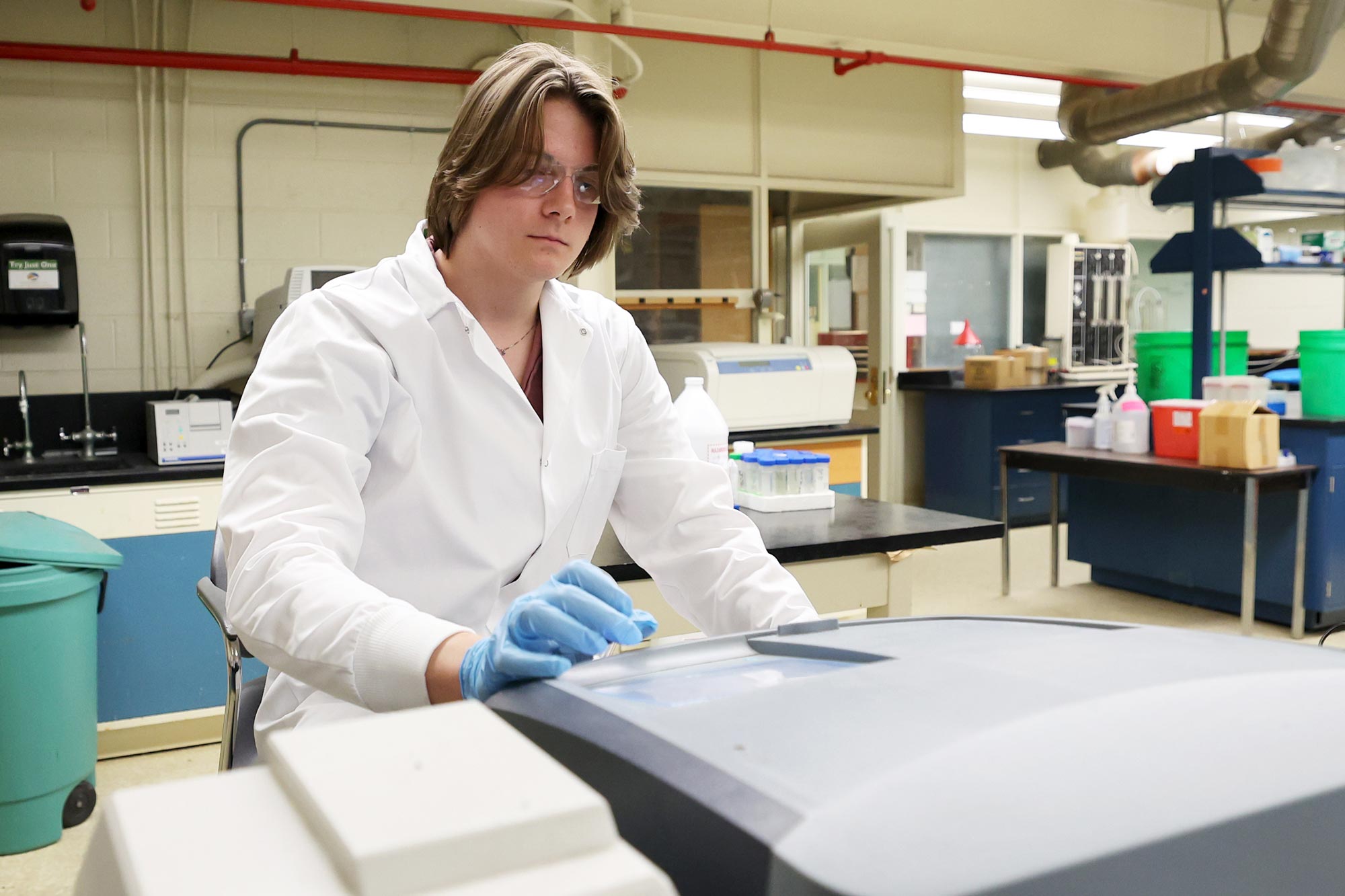“Learning to plan, execute and troubleshoot in the laboratory allows students to develop a range of skills and broaden their understanding of classroom concepts, along with growing their communication skills and providing them with mentors who are invested in their success,” she said.
Ryan Poquis, a rising third-year biomedical engineering student, spent his summer in Sameer Bajikar’s cell biology lab researching Rett syndrome, a neurodevelopmental disorder primarily affecting girls.
The lab studies genetically engineered mouse models in hopes of finding ways to relieve its symptoms. To do that, they’re studying the key biological pathway in Rett syndrome that leads to severe cognitive and social impairments, like poor motor control and anxiety. They hope to find a treatment that will help ease symptoms of Rett syndrome and other neurodevelopmental disorders.
Poquis joined the lab as a volunteer in January, cataloguing chemicals. Throughout the summer, he’s learned essential lab techniques, including micropipetting, genotyping and fluorescent microscopy.
During the school year, Poquis juggles other interests, including choir, the Organization of Young Filipino Americans, the University Guide Service, and leading the Virginia Gentlemen, UVA’s first a cappella group. The Dean’s Scholar funding allowed him to “fully immerse” in research over the summer, he said.
“This program has given me the space to really learn fundamental research skills and apply it to a project,” he said.
Nicole Zapertova, a rising third-year chemical engineering student, is exploring her interest in environmental work. In Andres Clarens’ lab, which applies environmental engineering tools to find decarbonization strategies, she’s assisting in research that investigates more sustainable alternatives to traditional cement, which releases 8% of the world’s carbon dioxide emissions, according to the U.S. Department of Energy.
“We’re working on more sustainable alternatives that have the same strength and instead of releasing CO2, capture it,” she said.
Day to day, that means mixing different powders with various chemicals and small rocks and molding them into cubes for testing. She said she enjoys the work and plans to return to the lab for the fall semester, even though she is not sure research and graduate school are in her future after graduation.
Graham Lenert, a rising third-year student and Charlottesville native, returned to the summer fellowship for the second time, rejoining Mete Civelek’s lab to study how heart attacks are experienced differently in males and females.
“There are known sex-specific differences in symptom presentation, pathophysiology and societal responses,” he said. “For example, there are delayed EMS responses for women presenting with heart attack symptoms because symptoms are more flu-like.”
They have identified a group of genes in female bodies that are expressed in inflammatory states, which could explain how women experience heart attacks differently than men.
“There are genes we suspect play a role differently in females than males that could lead to heart attack risk,” he said. “Because most studies have only been done on male participants, this helps us begin to develop precision medicine to help treat female patients better.”
Rising fourth-year student Andrew Balch, a computer science major, has spent his weeks in the Human AI Technology Lab with Afsaneh Doryab. They are researching noninvasive ways to obtain information about someone’s micronutrient status using devices like smartphones and watches.
This is his third year as a fellow and his second year working on the project. Balch plans to pursue an accelerated master’s degree after graduation and is now thinking about a doctorate.
“There have been talks about opportunities to support graduate work,” he said. “I’ve been looking into what (may) support me if I pursue a Ph.D.”
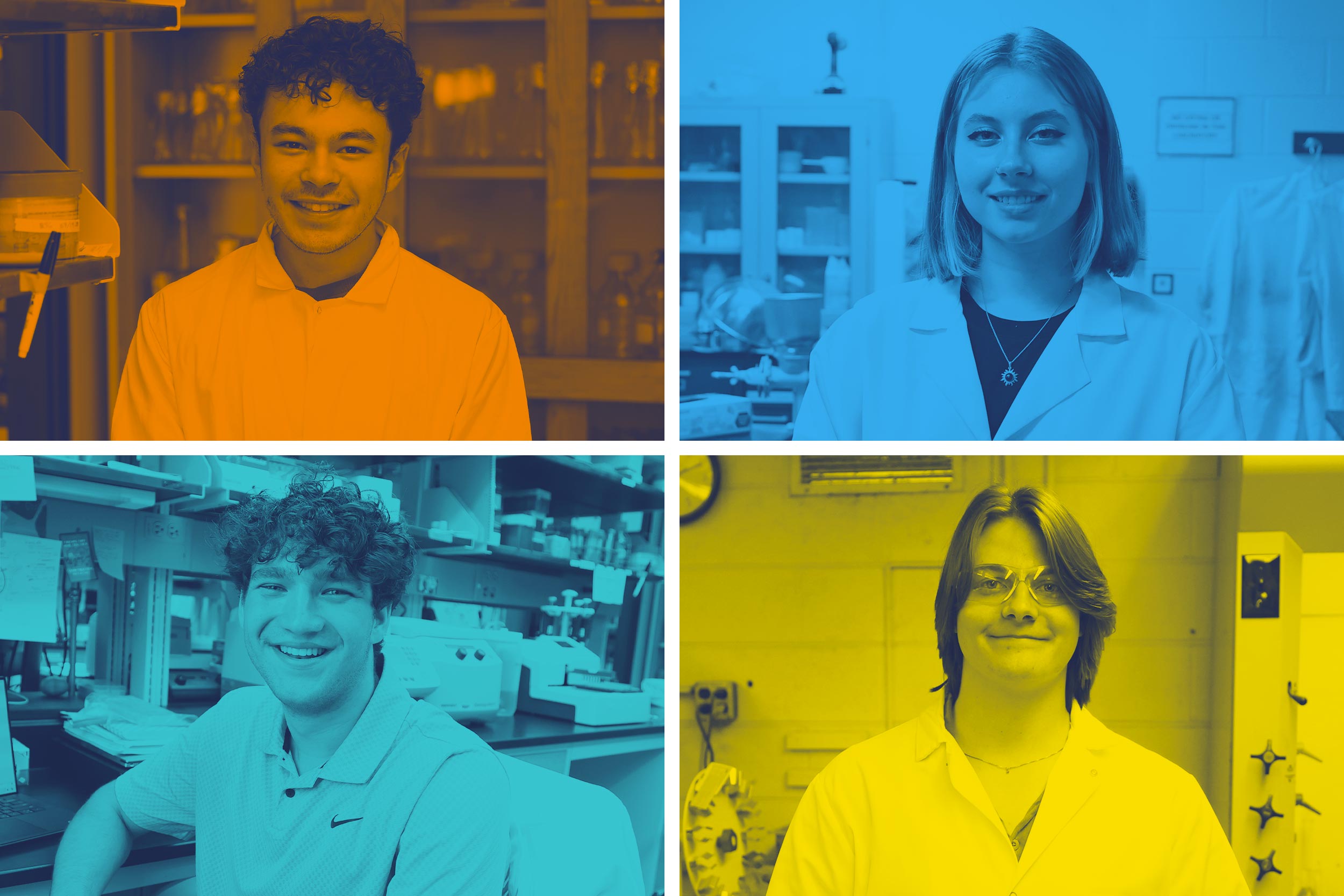

.jpg)
